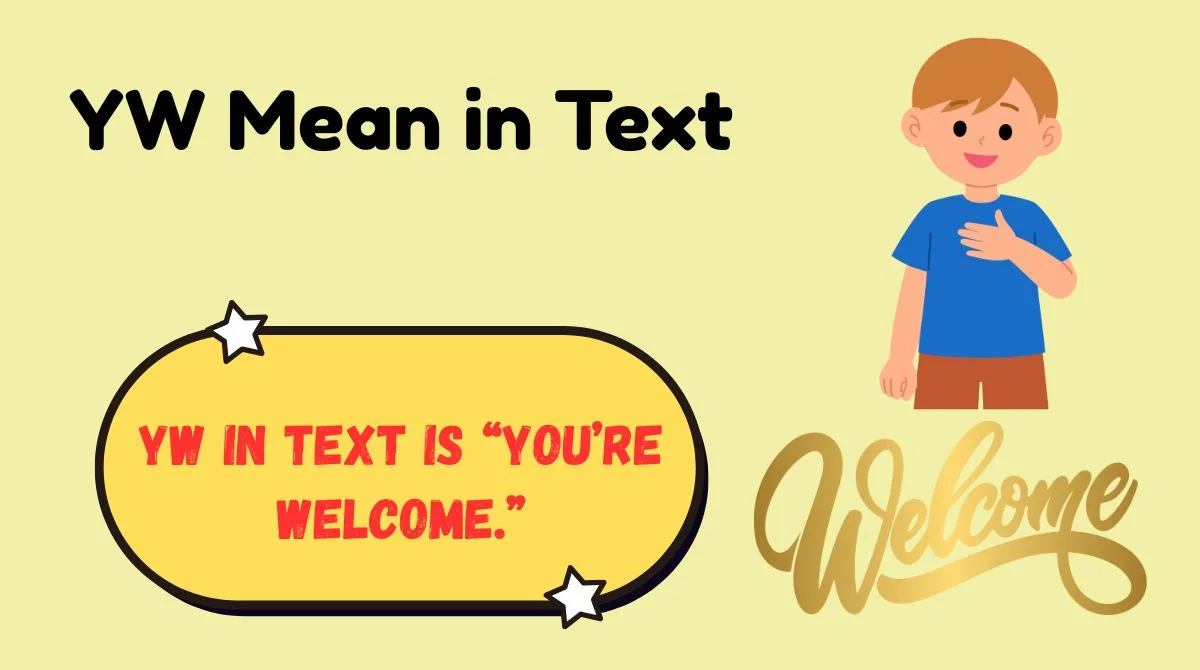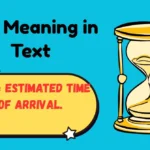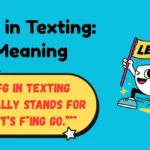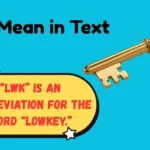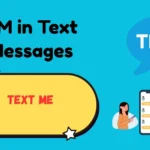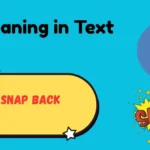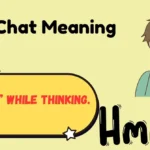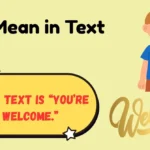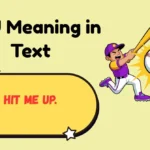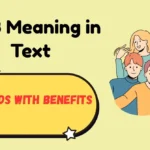Digital conversations today are packed with short forms and abbreviations. From LOL to BRB, we’ve learned to shrink sentences into two or three letters. Among these shortcuts, one that often pops up is YW.
So, what does YW mean in text? In most cases, it simply means “You’re welcome.”
Sounds simple, right? But here’s the catch—context matters. Sometimes YW is fine, and sometimes it can sound too casual, even dismissive.
In this guide, we’ll dive deep into what YW means, when to use it, when to avoid it, and how to choose better alternatives that actually build stronger connections.
What Does “YW” Mean in Text?
The most common meaning of YW in text is “You’re welcome.”
- It’s a reply to someone who says “thank you.”
- It’s widely used in texting, online chats, gaming conversations, and even on social media comment threads.
- It saves time by shortening two words into two letters.
For example:
- Friend A: “Thanks for sending the notes!”
- Friend B: “YW.”
Pretty straightforward. But acronyms can sometimes be tricky because they may carry different meanings in different contexts.
👉 While “You’re welcome” is the primary meaning, YW can occasionally stand for things like:
- You Wish (sarcasm or playful banter)
- Young Woman (rare, usually in certain forums or bios)
Still, when you see it in a conversation that follows a thank you, it almost always means “You’re welcome.”
When Is It Okay to Use “YW”?
Like all shortcuts, YW fits best in informal settings. You can use it:
- With friends and family in text messages.
- In casual group chats where quick replies keep things moving.
- On gaming platforms where speed matters more than full sentences.
- In social media comments when you don’t want to over-explain.
- When paired with emojis or GIFs to soften the tone (example: “YW 😊”).
Pro Tip: If the conversation is light, fun, and casual, YW is perfectly fine.
Situations to Avoid “YW”
There are moments when YW can feel lazy, cold, or even rude.
Avoid using YW in these situations:
- Professional conversations
- Example: replying to your boss or client with “YW” instead of “You’re welcome.”
- Formal emails
- A short “YW” in business communication may sound dismissive.
- With people unfamiliar with slang
- Older generations or non-native speakers might not understand YW.
- When tone matters
- If someone expresses deep gratitude, a two-letter reply may look like you don’t care.
Think of it like wearing flip-flops to a wedding—it’s not “wrong,” but it’s not appropriate either.
Why “YW” Can Feel Too Casual or Rude
Texting shortcuts are a double-edged sword. While they’re fast and efficient, they can sometimes carry unintended tones.
Here’s why YW may come off the wrong way:
- Too brief: Two letters can feel like you didn’t make an effort.
- Cold tone: Without emojis or extra words, YW might sound dismissive.
- Generational differences: Gen Z might think it’s normal, but millennials and older groups may prefer full replies.
- Cultural misread: In some cultures, politeness is shown through complete sentences, not shortcuts.
Example of tone shift:
- “YW.” (short, possibly cold)
- “You’re welcome 😊.” (friendly and warm)
- “Anytime! Glad to help.” (supportive and kind)
Notice how small changes can completely alter how the message feels.
15 Alternatives to “YW” (With Tone Examples)
Sometimes you want to keep it short but still show warmth. That’s where alternatives come in handy. Below are 15 better replies to “thank you,” broken down by context.
Formal / Professional
- You’re welcome.
- Classic, safe, works everywhere.
- My pleasure.
- Polished, professional, and polite.
- Of course!
- Friendly yet respectful.
- Happy to help.
- Shows effort and willingness.
Casual / Friendly
- No problem at all.
- Easy-going and relaxed.
- Anytime!
- Keeps the door open for future help.
- Don’t mention it.
- Down-to-earth and casual.
- It was nothing.
- Humble, kind, and caring.
- I’ve got you.
- Modern, shows support and closeness.
Playful / Lighthearted
- It’s all good.
- Chill and casual vibe.
- Not a problem.
- Simple and easy-going.
- That’s what I’m here for.
- Playful but warm.
- I’m glad I could help.
- Sincere and thoughtful.
- You bet.
- Confident and fun.
- Sure thing.
- Short, casual, but friendly.
Tone Comparison Table
| Alternative | Tone/Usage | Example Reply |
|---|---|---|
| You’re welcome | Neutral, universal | “Thanks for the report!” → “You’re welcome.” |
| My pleasure | Polite, professional | “Thank you for your help.” → “My pleasure.” |
| Anytime! | Friendly, casual | “Thanks for picking me up.” → “Anytime!” |
| I’ve got you | Supportive, modern | “Thanks for covering me.” → “I’ve got you.” |
| Sure thing | Playful, casual | “Thanks for the favor.” → “Sure thing.” |
How to Choose the Right Alternative
Not all thank-you replies fit every scenario. Choosing the right one depends on a few factors.
- Know your audience
- Friends? Casual.
- Boss? Professional.
- Match the tone
- Serious gratitude deserves a warmer reply.
- Light thanks can get a casual response.
- Be clear
- Avoid slang if the person may not understand it.
- Think about the platform
- Text = flexible.
- Email = more formal.
- Workplace chats = middle ground.
Why Full Replies Often Show More Effort
Words carry weight. A short “YW” might save you a second, but a full phrase builds connection.
Here’s why full replies matter:
- Show appreciation: You acknowledge their thanks properly.
- Add warmth: Politeness often lives in extra words.
- Strengthen relationships: People feel more valued when you respond with effort.
“Politeness costs nothing, but it buys everything.” – Traditional proverb
Do All English-Speaking Regions Use “YW”?
The use of abbreviations like YW isn’t universal.
- US/Canada: Very common among younger people.
- UK/Australia: Less common, often confusing for some.
- Other regions: Non-native speakers may struggle with such acronyms.
👉 When texting internationally, stick to full words to avoid miscommunication.
FAQs About YW in Text
Does YW always mean “You’re welcome”?
No. While it usually means “You’re welcome,” it can also mean “You Wish” or “Young Woman,” depending on context.
Is YW considered rude?
Not always. In casual chats it’s fine, but in formal settings it may seem lazy or dismissive.
Should I use YW with older people?
Probably not. Many older adults may not understand it or could misread it as impolite.
Is YW professional?
No. Stick with full replies like “You’re welcome” or “My pleasure” in professional settings.
What’s the safest alternative to YW?
“You’re welcome” is always safe—clear, polite, and universal.
Conclusion
At the end of the day, YW in text means “You’re welcome.” It’s short, fast, and fine for casual settings. But language isn’t just about efficiency—it’s about connection.
When you take the time to reply with something warmer or more thoughtful, you show that you care about the relationship, not just the conversation. Whether you’re texting a friend, chatting online, or writing an email, choose words that match the tone and situation.
A simple extra phrase—like “Anytime!” or “Glad I could help”—can turn a quick reply into a genuine moment of kindness.
